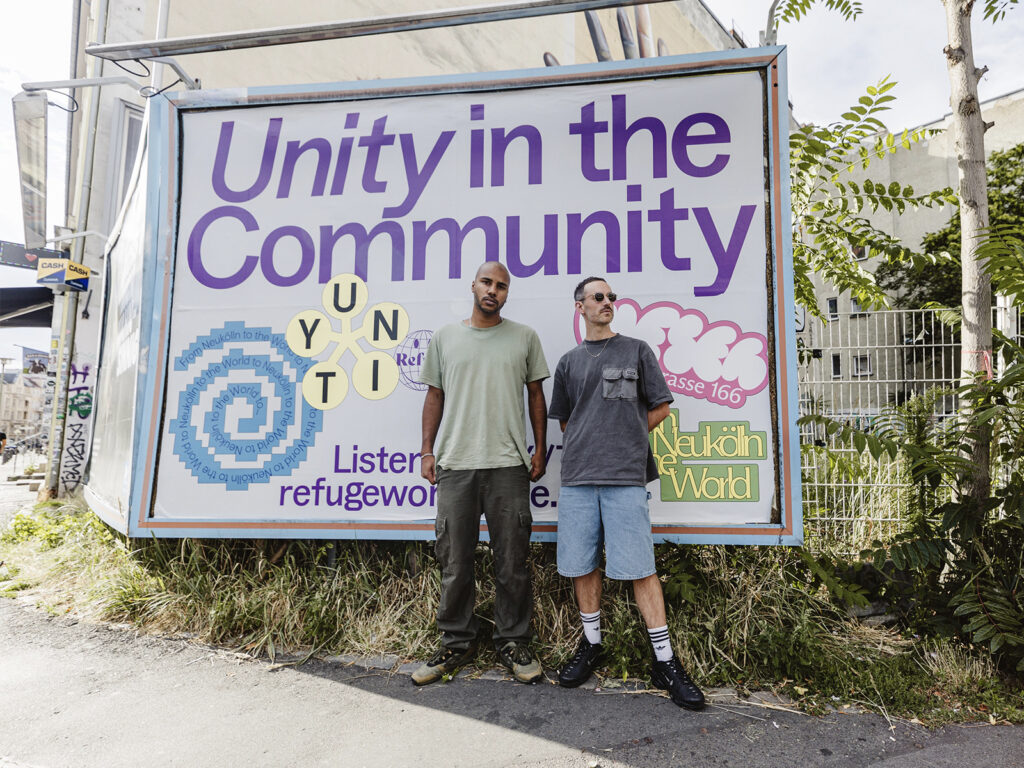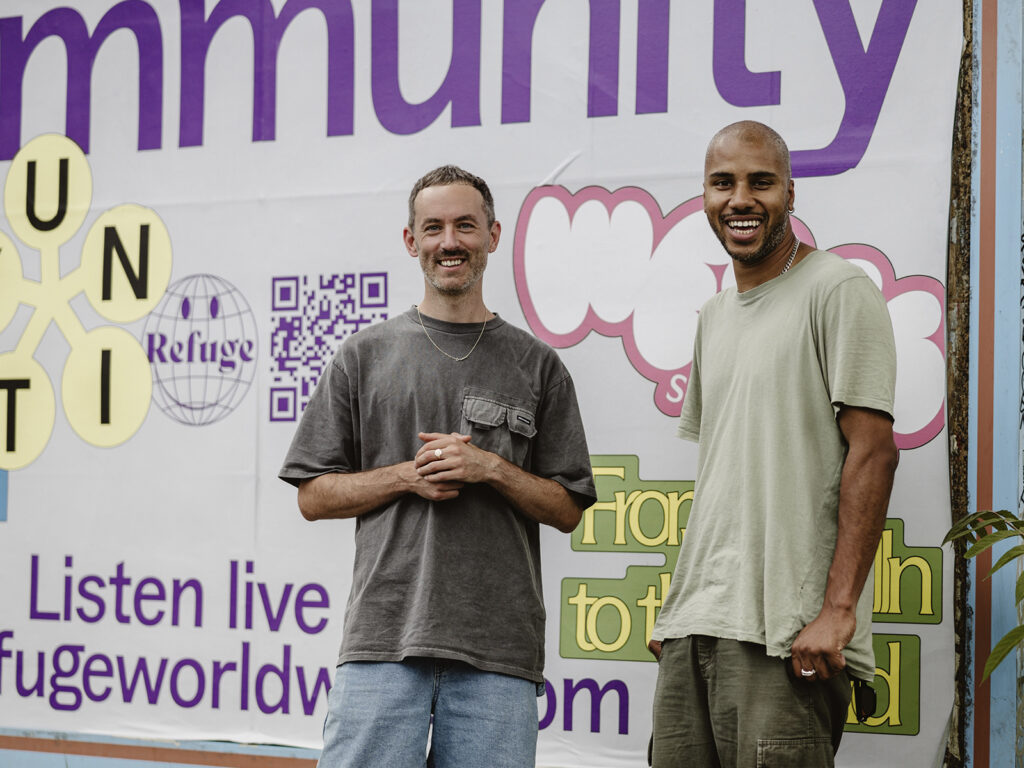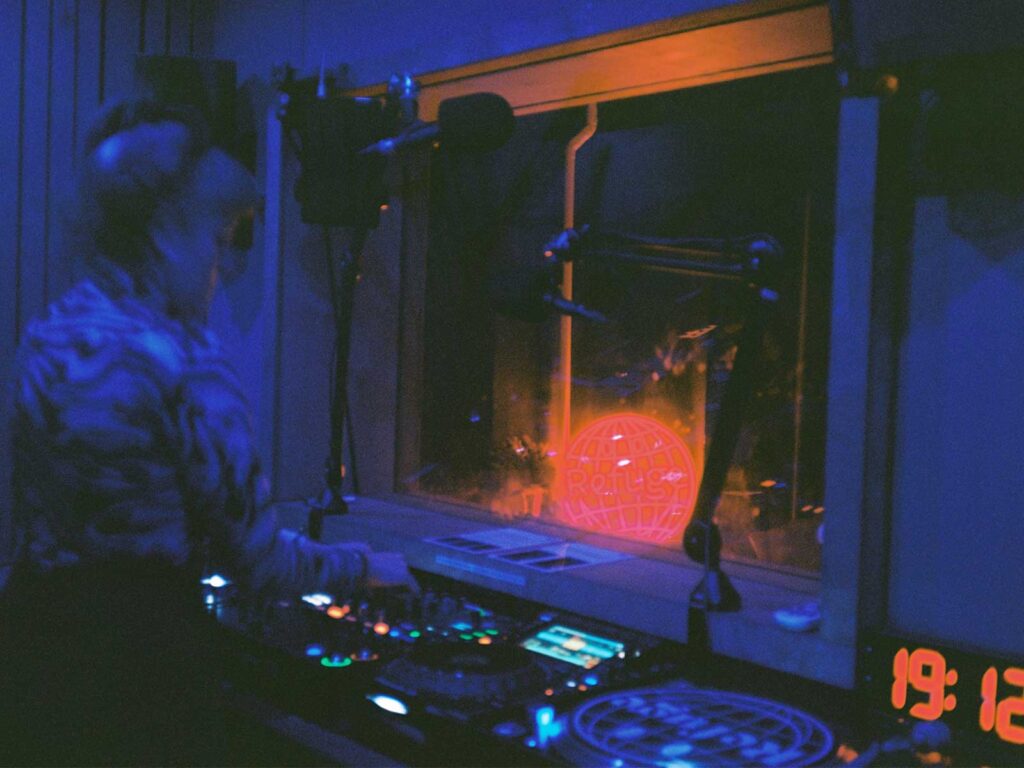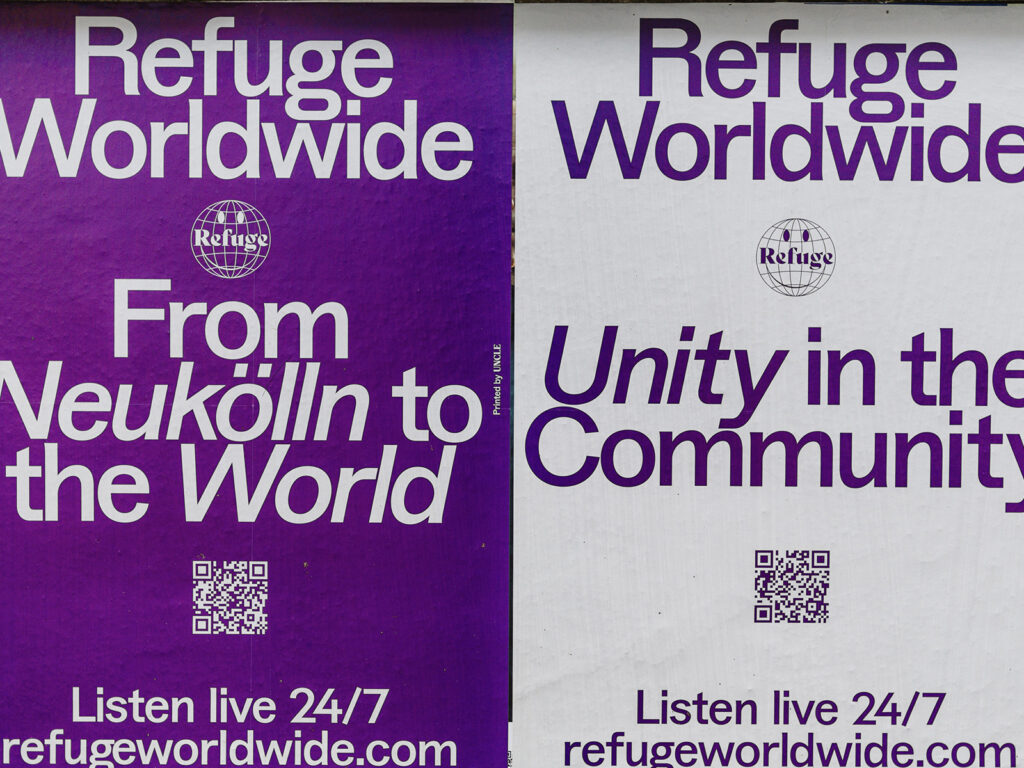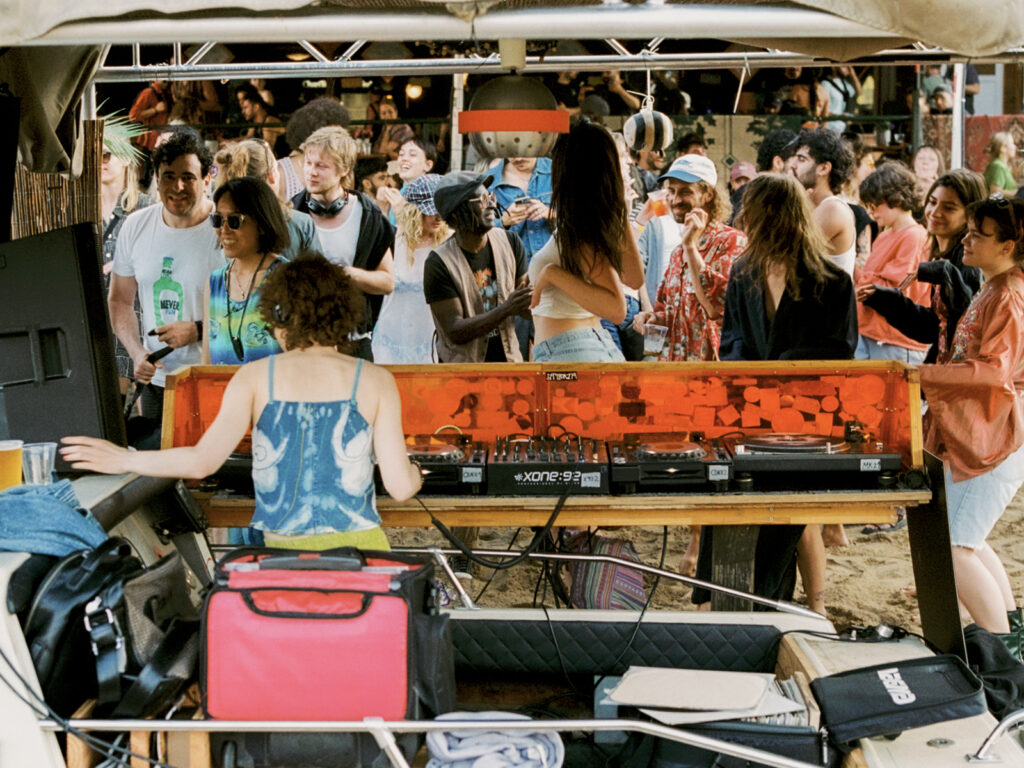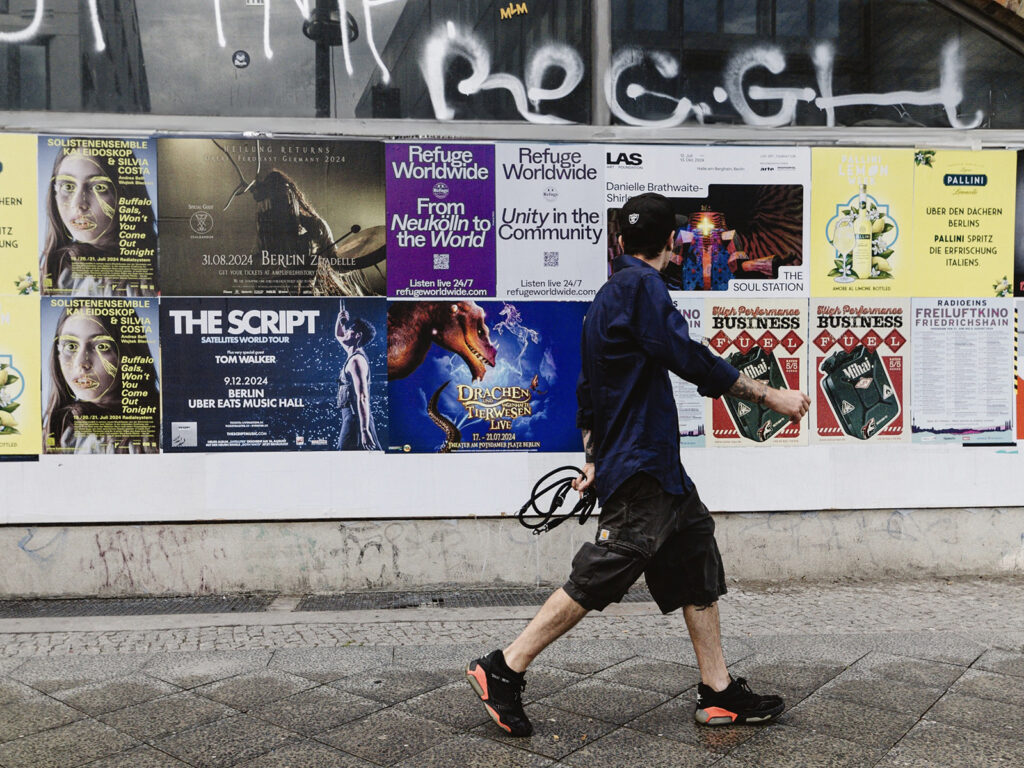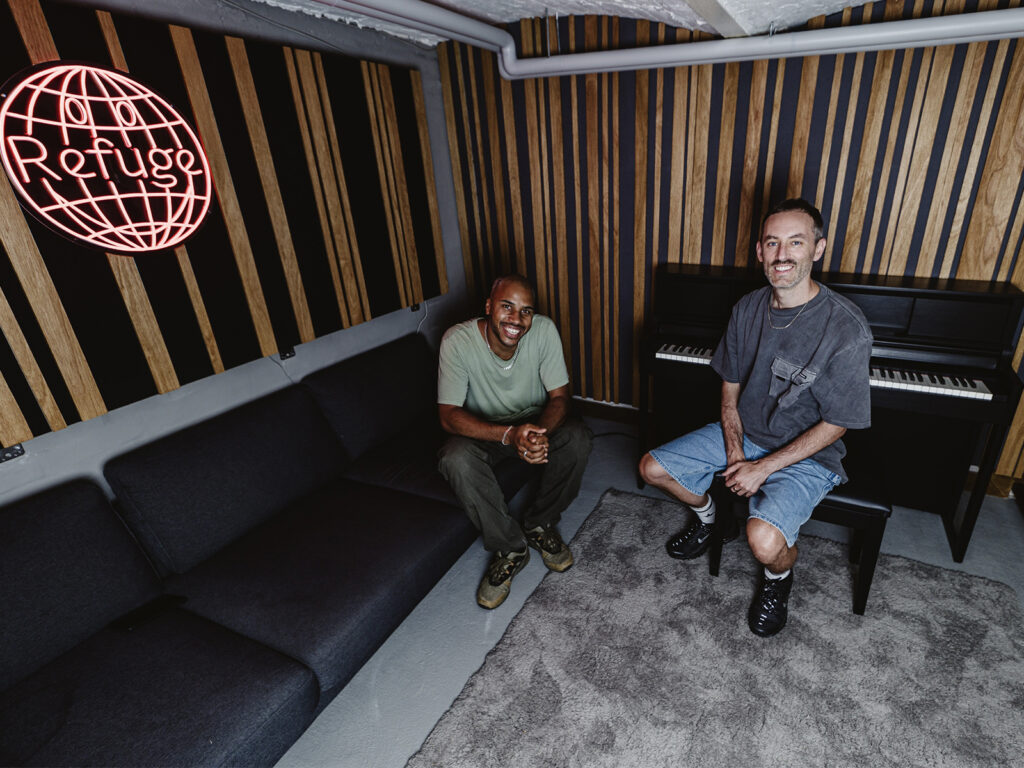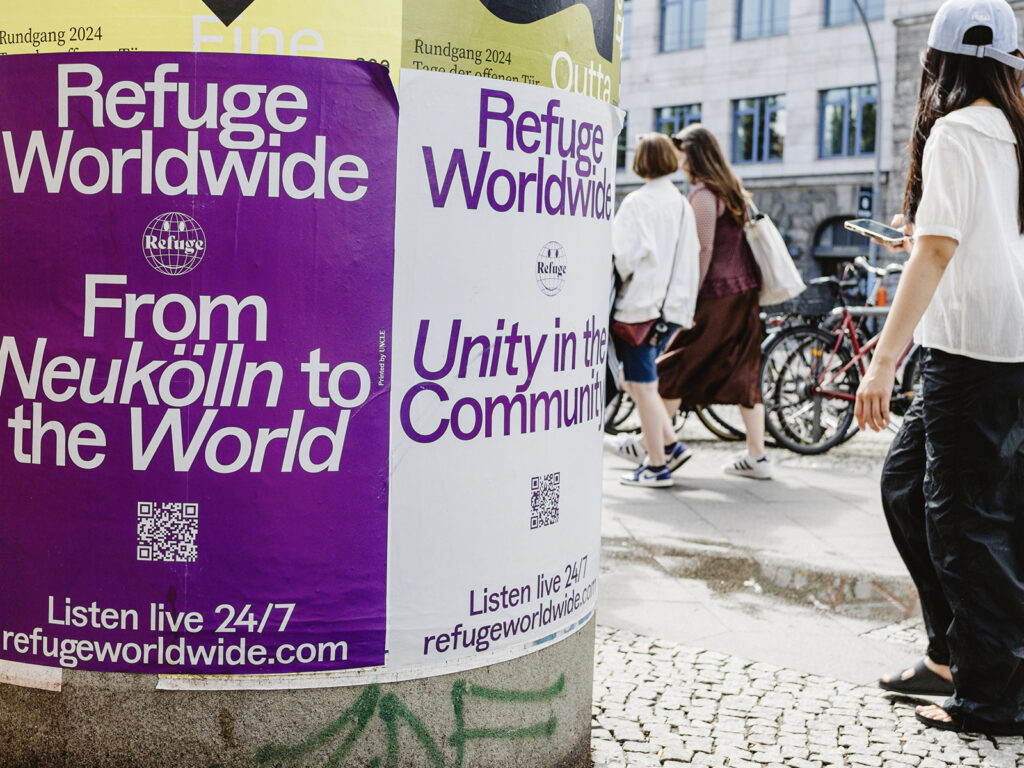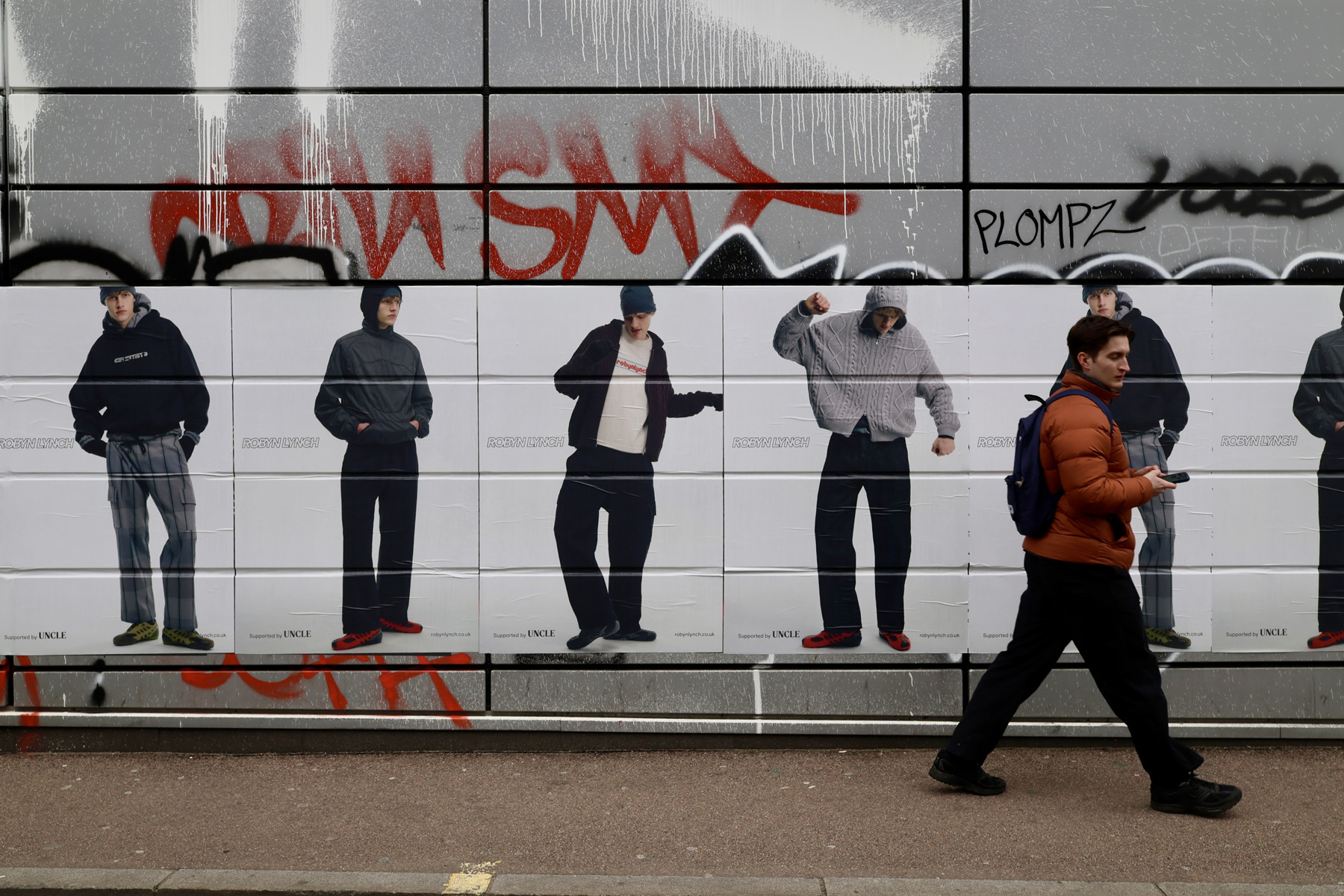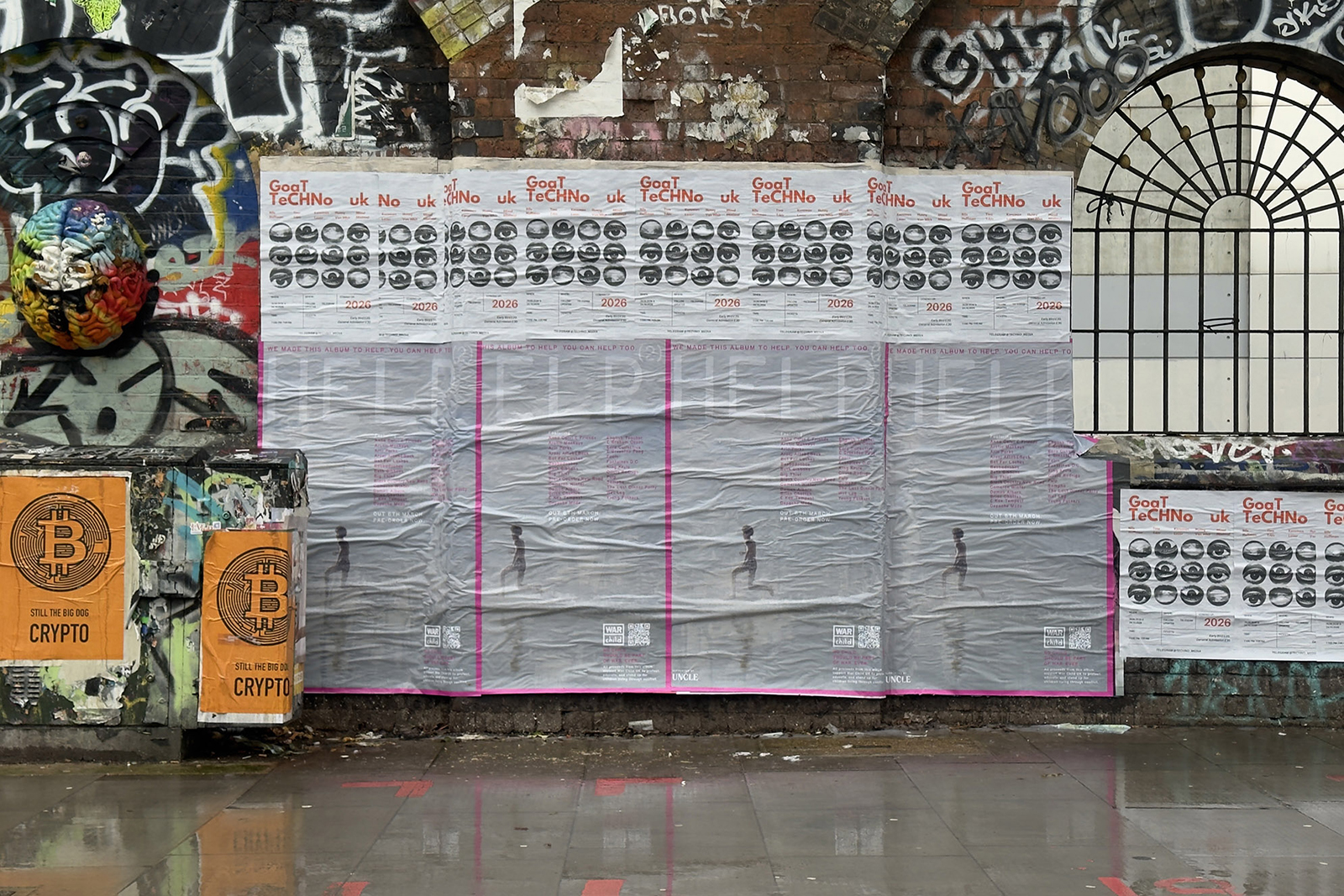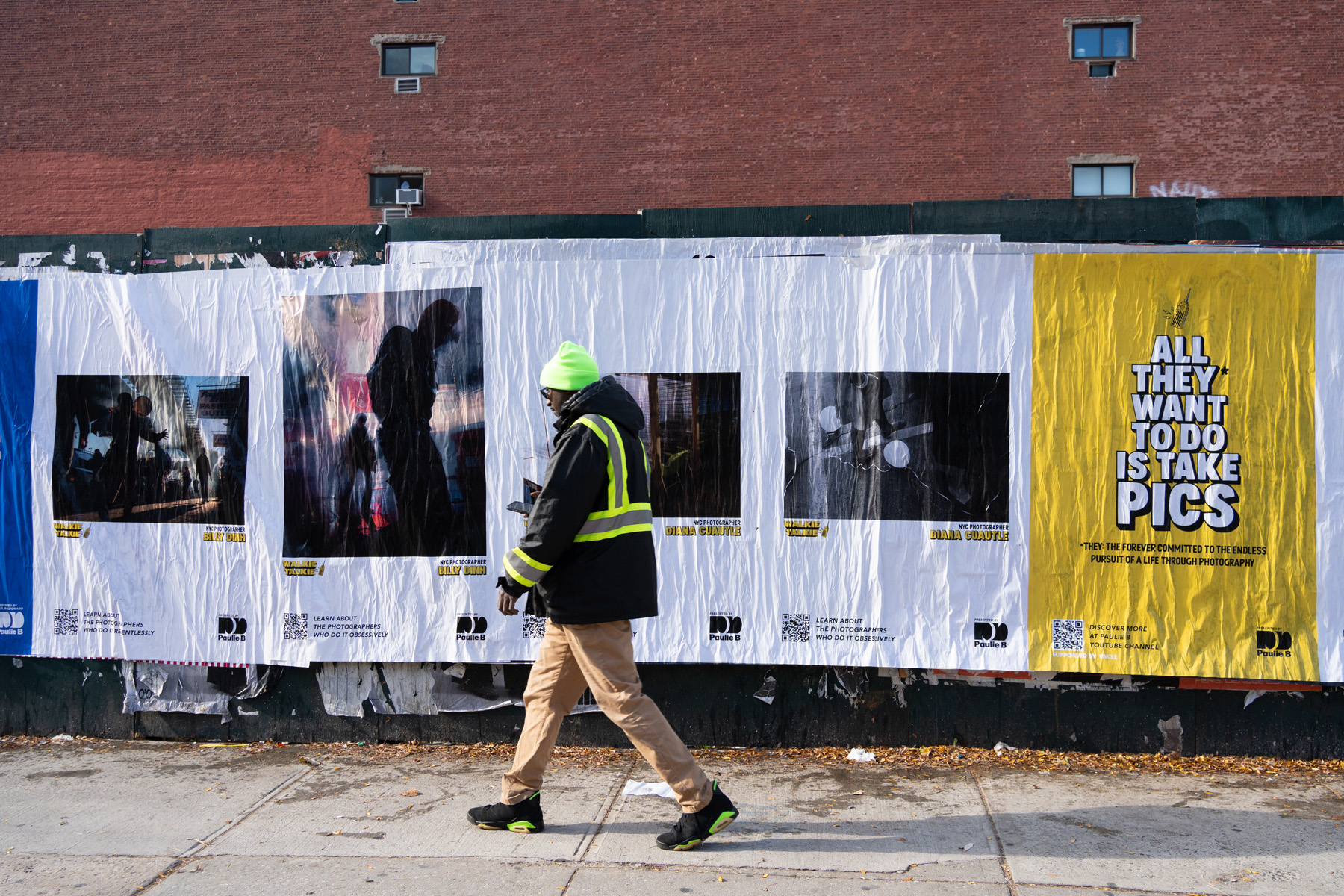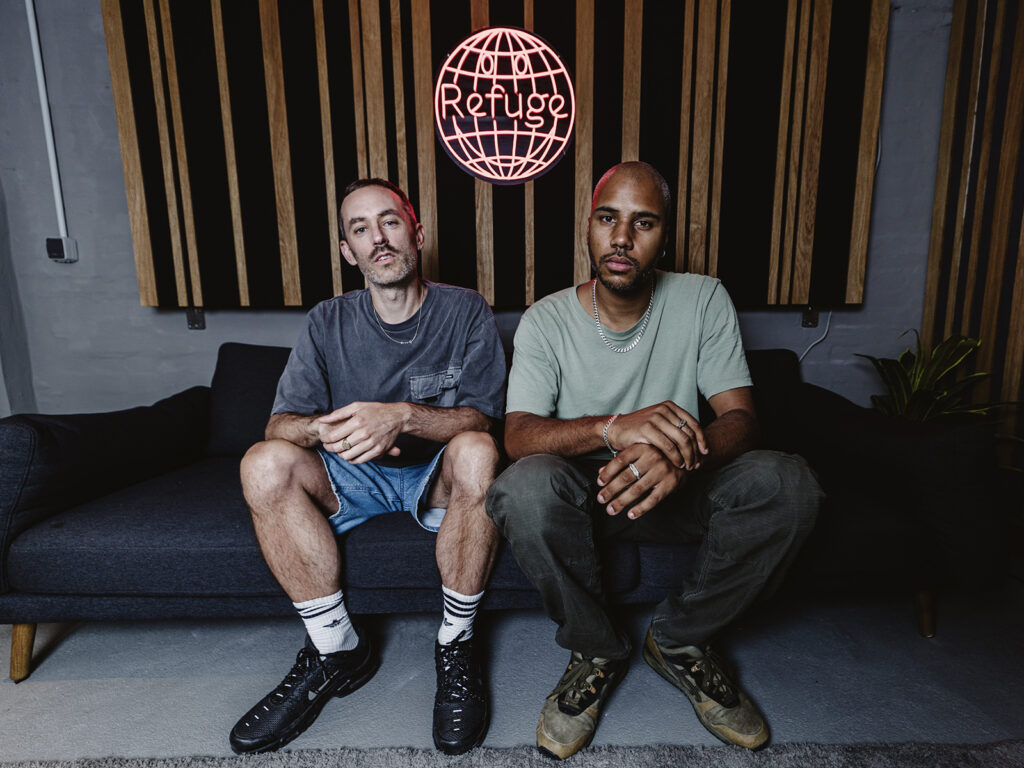
Radio has been with us for over a hundred years. Although you’ve probably not touched a dial or extended an aerial in a year or ten, the format is still evolving and organisations like Refuge Worldwide are sending clear signals about how radio is not only still relevant, but vital.
This dynamic online radio station from Berlin is the brainchild of co-founders George Patrick and Richard Akingbehin, who sought to create a platform that welcomes others like the city’s creative community welcomed them. Born out of a series of fundraising parties starting in 2015 for creative and social causes, Refuge works in solidarity with other grassroots and non-profit organisations. Since setting up the radio itself in 2021, they have provided support for the housing of refugees, developed programmes and music schooling for marginalised people, and supported social equity groups, homelessness agencies, and a shelter for women and young persons fleeing domestic violence. Meanwhile, the radio station has evolved into a vital community hub that not only platforms good music, but also educates and empowers, one show, one event and one workshop at a time.
At its core, Refuge Worldwide is committed to uplifting marginalised communities and addressing the imbalances that pervade the music industry and wider society. The station’s educational arm offers an array of workshops in DJing, music production, journalism, and photography, aimed at providing opportunities to those who have historically been overlooked. These workshops are not just about skill-building; they are about fostering confidence, creativity, and a sense of belonging. As George explains, “We started with an open-door policy, where people could use the studio for free. This was an entry point into what would later become the workshops, aiming to include everyone in the local area and beyond.”
The organisation has many goals and many outlets for achieving them, which currently includes a wildposting campaign all over Berlin as part of a collaboration with UNCLE. But in its broadest sense, Richard spelt out Refuge’s mission and its role in the wider ecosystem of its hometown: “Our goal is to elevate people into positions where they can influence and change the scene. Whether they become headlining artists or start their own small events, the impact is profound, not just on individuals but on the entire community.”
Berlin is pinned on the global map of club culture thanks to its weekend-long raves and establishments like Berghain – an (in)famous club where hedonism forms an orderly queue in front of a selective door policy that is the polar opposite of Refuge’s. For all its worldwide acclaim, Berlin does not come without its challenges for a project like this; gentrification, rising living costs and a tense political climate in which Germany’s far right is gaining traction. But the city’s raw creative spirit and openness to new ideas make it a place that Nadia Wise, one of many to host a show on the station, describes as ‘hopeful.’
And Refuge Worldwide embodies that hope. Through their Oona Bar, radio hub, or their newly-opened cultural space NM1 and through their workshops, through their events, and through radio.
To hear more about the station and its story, UNCLE had a chat with the two founders, who invited breakfast show host Nadia Wise to join the discussion and give the perspective of a resident.
FIRST THINGS FIRST, CAN YOU INTRODUCE YOURSELVES IN YOUR OWN WORDS…
George: I’m George, one of the co-founders of Refuge Worldwide. I grew up in Glasgow and have been in Berlin for ten years. We started Refuge as a fundraising party series to support the community here. During the lockdown, Richard and I decided to extend that into an online platform to continue serving the community around us.
Richard: I’m Richard, also from the UK and half Nigerian. I’ve been in Berlin for ten years too, working in various music-related roles. George invited me to start Refuge Worldwide, the radio station, based on the events he was already running. The timing was perfect, during the pandemic and the peak of Black Lives Matter, which made me want to direct my energy into something valuable for the community and myself.
Nadia: My name is Nadia Wise. I’m originally from the States but lived in London for 20 years before moving to Berlin three years ago. I’m a DJ, a record collector, and a former party promoter. I started doing radio with Refuge Worldwide over two years ago. I started with an experimental radio play and continued with different themed shows, exploring various genres and storytelling methods. I love sharing music and telling stories about my passion for it.
WHAT WERE SOME OF THE MOTIVATING FACTORS IN THE EARLIEST DAYS OF REFUGE WORLDWIDE?
George: One of the core motivations behind starting Refuge Worldwide was to support the local community that had embraced me when I moved from the UK to Berlin. I wanted to give back to this community, which led to the initial idea of organising fundraising parties. These events were completely voluntary, with people playing and working for free. This established a good reputation and trust within the city, which helped us when we decided to expand into an online platform during the lockdown (pandemic).
Additionally, my passion for music, whether it’s from the club scene or niche genres from around the world, played a significant role. Creating a platform that merges these interests with a commitment to social issues was something I felt strongly about. During the early parties, I noticed that many attendees were not fully engaged with the issues we were fundraising for. This observation highlighted the need for a platform that could better link people to these causes, making them more aware and encouraging them to care. Radio, with its ability to tell stories, seemed like the perfect medium to use.
Richard: The music scene was extremely imbalanced in terms of race, gender, economic background, and more. One of our motivations was to create a diverse radio program that offers opportunities to people who have never had them before. This includes educational workshops in various sectors, all aimed at addressing these imbalances.
AND NADIA, AS A HOST OF A REGULAR SHOW ON THE STATION, WHAT IS IT ABOUT RADIO AS A MEDIA FORMAT THAT YOU LOVE?
Nadia: The creative freedom and ability to engage with listeners in a unique way make it a very personal and fulfilling experience for me. I didn’t really know that much about radio before Refuge, but I had a kind of ‘meeting’ with Richard, which was just a short conversation, very casual, that I didn’t really know was a meeting. I just talked loads about music, and he was like, ‘That’s cool. How about March 20-something?’ and I was like, ‘Okay,’ and then I didn’t really realise that was going to be my first show. So, I went in and he gauged from that conversation and from my enthusiasm that I’d be really good for radio, even though I didn’t know it myself. He has that really great intuition of programming and believing in people.
WHILST RICHARD BLUSHES, COULD YOU TWO FOUNDERS ALSO TELL THE PEOPLE WHY RADIO WORKS SO WELL FOR HELPING YOU ACHIEVE YOUR MISSION?
George: There are so many reasons. I mean first of all, it’s really easy to get started. We want something that’s not intimidating, something that is kind of romantic. When we started it was easy. This is just Rich and I on our laptops at home. People are sending us mixes and we can broadcast them around the world. You can do a party in a city and you’ll have a few hundred people there. But when you broadcast the music all around the world and you have listeners in hundred-plus countries, it’s a really great feeling.
It’s such a great listener experience in comparison to a Spotify or a SoundCloud or wherever you get your music. Having a host again, that’s why Nadia excels at it. It’s like someone who can anchor the show, someone who becomes like a friend to the listeners, someone who’s got a familiar voice and people want to tune in to hear them, whether they’re chatting, whether they’re nerding out or just shooting the shit for an hour with one of their friends. I think that’s what makes radio so engaging in comparison to any of these newer models or mediums. It’s why it lasted so long. It goes back 100-odd years and every time there’s a new piece of technology, radio seems to evolve to this new era of online community radio.
Richard: George pretty much said it all! But I guess one thing to add would be the ‘no video policy’ that we have. It’s something that’s becoming more unique to us because more stations go with video content either totally, all the time, or just for specific shows. But for now, we are trying to keep it with this old-school approach.
WHY HAVE YOU DECIDED NOT TO USE VIDEO CONTENT AT THE STATION?
Richard: One of the reasons for that is to keep that barrier to entry as low as possible so people can feel free to come and play their music on the radio with, ideally, as little stress as possible. I do realise that some people still find it stressful, but I think we try to make it as cosy and relaxed and comfortable an environment as we can. If you don’t like what you’re hearing, you can just turn it off. It’s not like paying a gig in a club where you paid to be there or bought a drink and have to stay. You can just choose another show if you don’t like it. So there’s a real freedom that you have for the host to express themselves in a quite relaxed environment, and that really allows us to offer a platform to people with very little technical ability.
They grow very fast; people who are scared to even touch the microphone on show one, by show two, they’ll say a few things, show three, they’ll say a bit more, and then soon enough, they will just keep talking all the time and you can’t shut them up… and that’s great.
YOU’VE BEEN SET UP AT OONA BAR IN NEUKÖLLN FOR A WHILE NOW. HOW IMPORTANT IS IT FOR THE RADIO STATION TO HAVE ITS OWN SPACE?
Nadia: Having a dedicated space for Refuge Worldwide is incredibly important. It’s not just a place to broadcast; it’s a community hub where people can come together, share ideas, and collaborate. It’s where the magic happens.
George: I think it’s really important that you can carry that online network and community into a physical space. It brings a smile to everyone’s face. It’s like an anchor point for the team, it’s where residents can come to hang out on their own, or where maybe people might want to have a drink and listen to some great music.
AND THERE ARE PLANS FOR A NEW REFUGE SPACE, RIGHT?
George: Yep, I’m speaking to you from there now! What we currently have is a very small space, so all these things that we’re talking about—education, a growing team, a bar, a professional radio studio—all that into 45 square meters? It was tricky straight away, especially with the popularity of the station. Say you’ve got four people coming in for a drink, three team members trying to have a video call, you want to have a photo shoot or a workshop in the back—it’s just chaos, the best kind of chaos, which I’m a big fan of – but as the work and education arm grew, and as the team grew, it was very obvious to us that we needed another space.
As the station got so much bigger, with more partnerships, more projects, and more residents, having a bigger space that could operate as an office, a workshop room, and an event space just became too tempting.
YOU’VE MENTIONED THAT THE ‘EDUCATION ARM’ OF REFUGE IS GROWING ALL THE TIME. CAN YOU EXPLAIN A LITTLE BIT MORE ABOUT THE WORKSHOPS THAT YOU HOST?
Richard: Our educational initiatives started with a lot of DJ workshops and then expanded from there. We realised that focusing solely on DJ workshops wasn’t enough, so we started offering educational workshops in various sectors, such as journalism, photography, and music production. Every time we organise these workshops, our selection process aims to address the imbalances in the music scene and beyond. We aim to elevate people into positions where they can influence and change the scene, whether they become headlining artists or start their own small events.
We’ve also taken our workshops on the road, touring Europe and hosting events where we combine parties with educational sessions. This approach has become one of our signature formats. When we visit a city, we add an educational aspect to show that we’re not just regular promoters. This inspires clubs and venues to use their spaces for educational purposes, helping people grow as well as enjoy themselves.
George: Originally, there was a promise made when we did a crowdfunder to help get the lease on where the radio station is. The promise was that the space would be for everyone in the local area. We kicked that off by having an open-door policy, where people could just come and use the studio for free. This was an entry point into what would later become the workshops. Having this accessible top-of-the-range gear that literally anyone in the neighbourhood could access was crucial. However, we learned that not everyone in the neighbourhood found out about these offers, so we had to extend our network. We built relationships with nonprofits and collectives, inviting marginalised people from different walks of life across the city to participate.
We paired up with a friend of ours, Gaby D’Annunzio, who was running another group called Open Music Lab. This organisation works with disadvantaged and marginalised people who are new to the city. With Gaby’s expertise, we bounced ideas off each other and developed different ways to disseminate information and reach the right people. Our workshops began to attract attention, and we received support from brands and press, which allowed us to expand further.
Eventually, we got a call from Apple, who wanted to run a project called Creative Studios in Berlin. They wanted to use our contacts and expertise to produce a four-week podcast program with 40 students. Developing this program and having resources from Apple took us to a new level. We hired Gaby full-time, and she spent her days drawing up programs, making connections, and building relationships around the city. Off the back of that, things went from strength to strength.
THE WORLD KNOWS BERLIN AS ONE OF THE BEST CITIES IN THE WORLD FOR ELECTRONIC MUSIC, DJS AND CLUB CULTURE, BUT WHAT ARE SOME OF THE CHALLENGES THAT YOU FACE RUNNING REFUGE WORLDWIDE IN BERLIN?
Nadia: My least favourite thing about Berlin is the political climate right now. The increasing control that the government has over creative spaces and organisations, along with funding cuts and venue closures, are significant challenges. This is part of the same type of gentrification and commercialisation that is happening globally. I appreciate the diversity in Berlin, which makes the city vibrant, but there’s also a culture of fear due to censorship. Taking the recent protests in support of Palestine as an example, people are being arrested, harassed, and silenced, which is really concerning. Despite this, places like Refuge and certain alternative venues provide genuine safe spaces where people can talk openly about issues like Palestine without fear. But overall, the political and economic pressures are a big challenge for maintaining and growing our project.
George: It’s really hard to look past what Nadia has touched on. The political climate and the challenges posed by gentrification are significant issues. Rising rent prices, whether for private individuals or for venues and collectives, are a major problem. This changes the landscape of Berlin and makes it harder to maintain the spaces that foster creative communities. We face the same problems that everyone has, such as a lack of spaces and representation in the industry. While Refuge tries to address these issues, the fight is definitely a physical one in the streets as well. We see this in the news every week, with demos and protests, whether it’s in universities or cultural spaces having their funding taken away. I’m really glad that Refuge has this independent platform, and we’re not beholden to government funding, so we can still give a voice to those who should be heard without being censored or threatened.
HONING IN ON THE THINGS THAT ARE TRULY SPECIAL ABOUT THE CITY, WHY DO YOU THINK BERLIN WORKS AS A CITY TO HOST REFUGE WORLDWIDE AND SO MUCH OF THE WORK YOU DO?
Richard: Berlin’s creative spirit, despite being eroded by gentrification and rising living costs, remains a key factor. Compared to other capital cities, Berlin still has a rawness and a drive for radical art. There are still many spaces where artists can practice and showcase their work. This city offers a unique blend of comfort and creative opportunity. Additionally, the privilege of living in a place where things generally function and safety nets exist is significant.
George: Berlin is unique in many ways. The city has a history of being a haven for creative and marginalised communities. This creates a fertile ground for projects like ours. When Rich and I moved here, we were embraced by this community, which was a significant motivating factor for us. The city’s openness to new ideas and its rich cultural tapestry make it an ideal location. The challenges we face, like gentrification and the political climate, also reinforce the need for our work. We want to address these issues and make a positive impact on the community.
Nadia: Berlin is different from some of the rest of Germany due to its diverse population, which makes the city vibrant and exciting to me. There are so many migrants here that make the city really great. The creative and artistic freedom is unparalleled. Even though the political climate poses challenges, the presence of like-minded people and supportive communities like Refuge Worldwide make it a hopeful place. The segregation of the music scene by genre was surprising to me, but the coming together of like-minded people with shared values gives me optimism. It’s a place where genuine conversations and collaborations can happen.
Image Credits: Sebastian Luna Cortes, Karl Magee and Lena Brecht
